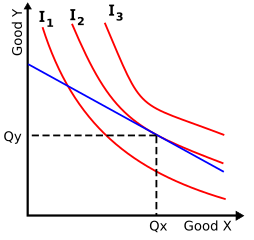Why is it usually required that utility function be concave? Is it because concavity is a necessary (or sufficient?) assumption for a unique equilibrium?
Can someone please spell this out for me? Thank you. Edit: To clarify, I'm interested in the mathematical (modeling) reason for concavity. That concavity implies diminishing marginal utility and risk aversion is another matter.
